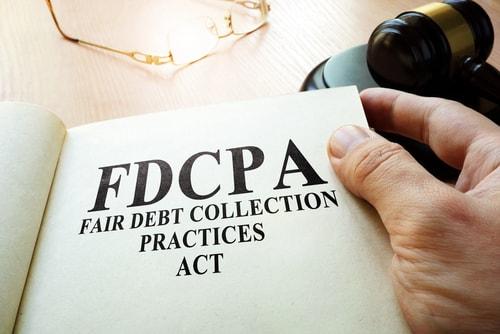1512 Artaius Parkway, Suite 300,
Libertyville, IL 60048
Call for a FREE Phone Consultation
847-549-0000
Video Consultations Also Available
 Spanish
SpanishServing Clients Across 7 Illinois Locations
Recent Blog Posts
What Is a Strategic Default on a Residential Mortgage?
 If you financed the purchase of your home with a mortgage loan, you probably signed what seemed to be mountains of paperwork. Buried in each document and hidden in confusing language were the terms and conditions of your loan and what would happen if you failed to make the required payments. Off the top of your head, you might not be able to recall all of the specific details, but you probably realize that if you do not keep up with your mortgage, the loan will go into default. If you stay in default for long enough, the lender will initiate foreclosure proceedings and eventually take your home.
If you financed the purchase of your home with a mortgage loan, you probably signed what seemed to be mountains of paperwork. Buried in each document and hidden in confusing language were the terms and conditions of your loan and what would happen if you failed to make the required payments. Off the top of your head, you might not be able to recall all of the specific details, but you probably realize that if you do not keep up with your mortgage, the loan will go into default. If you stay in default for long enough, the lender will initiate foreclosure proceedings and eventually take your home.
With this in mind, it would seem that defaulting on your mortgage is something that should be avoided at all costs. In some situations, however, a strategic default could help you find a way out of a difficult situation.
How Will Foreclosure Affect My Credit Score?
 Regardless of who you are, how much money you have, and the types of property you own, the word “foreclosure” is likely to generate feelings of fear, anxiety, and stress. If you are struggling to make the mortgage payments on your family home, the idea of foreclosure is likely to be especially frightening.
Regardless of who you are, how much money you have, and the types of property you own, the word “foreclosure” is likely to generate feelings of fear, anxiety, and stress. If you are struggling to make the mortgage payments on your family home, the idea of foreclosure is likely to be especially frightening.
Most people understand the basic steps of foreclosure, even if they do not know all of the details. In short, they know that the lender will eventually force a homeowner who is in default to leave the property. Then, the lender will reclaim possession of the home and attempt to sell it in an effort to recoup some of the losses incurred. What many people do not realize, however, is the effect that a foreclosure will have on the borrower’s credit score.
Your Credit Score
Your credit score is a statistical rating that lenders and other institutions use to evaluate how well you manage debt. Credit scores can range from 300 to 850, and higher scores indicate stronger creditworthiness. A credit score above 740 is considered to be “Very Good,” and above 800 is considered “Excellent.” Between 670 and 739 is “Good,” while 580 to 669 is “Fair.” Anything below 579 is considered “Poor.”
What You Should Know About Buying an REO Property
 If you are looking to buy a home, you might have friends and family members suggesting that you should look into buying a foreclosure property. A foreclosure property is a piece of real estate that has been put up for sale by the bank after the original owner of the property failed to keep up with the mortgage payments.
If you are looking to buy a home, you might have friends and family members suggesting that you should look into buying a foreclosure property. A foreclosure property is a piece of real estate that has been put up for sale by the bank after the original owner of the property failed to keep up with the mortgage payments.
Because a foreclosure sale is typically an auction, you could potentially get a great deal. But, what happens to homes that are foreclosed on and put up for sale at an auction but do not get sold? These properties revert back to the lender and become what are known as real estate-owned, or REO, properties.
Failed Foreclosure Auctions
When a lender seizes a home in foreclosure and puts it up for sale initially, the sale is usually conducted as a public auction. This means that the home will go to the highest bidder. In many cases, however, bidders do not get the chance to see or inspect the property before the auction. Additionally, the high bidder will normally be expected to pay for the property on the spot with cash or a certified check. Financing is available in certain situations, but most auctions sales are completed without it.
Your Lender Could Owe You Money after Foreclosure
 If you are facing the possibility of foreclosure, you probably have many concerns. You are likely to be worried about the details of the foreclosure process in addition to more personal considerations such as where you are going to live and how you will repair your credit in the years to come. It is not unusual for homeowners in foreclosure to believe that they will be lucky to get through the proceedings without owing anything additional on their home. Depending on the circumstances of your situation, however, your lender might actually owe you money when everything is all said and done.
If you are facing the possibility of foreclosure, you probably have many concerns. You are likely to be worried about the details of the foreclosure process in addition to more personal considerations such as where you are going to live and how you will repair your credit in the years to come. It is not unusual for homeowners in foreclosure to believe that they will be lucky to get through the proceedings without owing anything additional on their home. Depending on the circumstances of your situation, however, your lender might actually owe you money when everything is all said and done.
Balancing the Numbers
As a homeowner, you probably know that foreclosure is the process that a lender will use to reclaim your home if you fail to make your agreed-upon payments. During foreclosure, you will be given notice to vacate the property, and the home will be sold at a sheriff’s auction. The proceeds of the sale are then used by the lender to satisfy the remaining balance of the mortgage loan. What happens next will depend on the situation.
Supreme Court Rules Foreclosure Lawyers Are Not Debt Collectors
 In the state of Illinois, foreclosure proceedings are handled entirely through the court system. Known as judicial foreclosure, the process is governed by the normal rules of civil procedure, just as any other civil lawsuit would be. In other states, non-judicial foreclosure is sometimes an option. A non-judicial foreclosure means that language in the mortgage agreement gives the lender the right to seize and sell the home in question if the borrower fails to make his or her payments.
In the state of Illinois, foreclosure proceedings are handled entirely through the court system. Known as judicial foreclosure, the process is governed by the normal rules of civil procedure, just as any other civil lawsuit would be. In other states, non-judicial foreclosure is sometimes an option. A non-judicial foreclosure means that language in the mortgage agreement gives the lender the right to seize and sell the home in question if the borrower fails to make his or her payments.
While the primary difference between judicial and non-judicial foreclosure is whether or not the court is involved, this difference has led to other issues. For example, does a mortgage loan constitute traditional debt? What about the lawyers who represent the lenders during foreclosure? Are they considered to be debt collectors? Earlier this year, the United States Supreme Court weighed in on these exact questions in a case entitled Obduskey v. McCarthy Holthus LLP.
Avoid These Common Mistakes If You Are Facing Foreclosure
 As most people know, regardless of whether or not they have ever owned a home, foreclosure is the process that lenders use to reclaim a home from a borrower who has violated the terms of the mortgage loan agreement. The most common violation, by far, is the failure to make monthly payments as specified in the loan paperwork.
As most people know, regardless of whether or not they have ever owned a home, foreclosure is the process that lenders use to reclaim a home from a borrower who has violated the terms of the mortgage loan agreement. The most common violation, by far, is the failure to make monthly payments as specified in the loan paperwork.
Foreclosure can be frightening, not to mention long and confusing for the average person, and it is easy to make mistakes when facing difficult circumstances. If you are seriously delinquent on your mortgage payments and foreclosure has become a possibility, you will want to avoid some common mistakes.
Mistake #1: Ignoring Letters and Calls From Your Lender
Under Illinois law, your lender cannot begin foreclosure proceedings until you are at least 120 days behind on your mortgage. In the meantime, your lender will probably start sending you letters and calling you to remind you that you are approaching default status. Taking these calls and responding to the letters will be uncomfortable, for sure, but ignoring them is not a good option. Your lender may have alternatives to foreclosure available that you would never learn about by avoiding their calls. In some cases, avoiding contact with your lender could even encourage the bank to push foreclosure proceedings along faster once you reach the 120-day point.
The Advantages of a Short Sale Over a Foreclosure
 Falling behind on your mortgage can be a source of tremendous anxiety. Most homebuyers are fully aware that failing to make mortgage payments will eventually result in the lender foreclosing on the loan, seizing the home, and selling it at auction. If you are currently struggling to stay current on your mortgage payments, or if your lender has initiated foreclosure proceedings, you might be able to negotiate a short sale, which could allow you to avoid several unpleasant realities.
Falling behind on your mortgage can be a source of tremendous anxiety. Most homebuyers are fully aware that failing to make mortgage payments will eventually result in the lender foreclosing on the loan, seizing the home, and selling it at auction. If you are currently struggling to stay current on your mortgage payments, or if your lender has initiated foreclosure proceedings, you might be able to negotiate a short sale, which could allow you to avoid several unpleasant realities.
What Is a Short Sale?
In simple terms, a short sale is the sale of property for a price that is less than what the owner owes on his or her mortgage. Before a short sale can be completed, the lender must agree to the sale. Additionally, in most cases, the lender will agree to accept the proceeds of the sale and forgive any shortfall between the sale price and the remaining balance of the mortgage. For example, if you have $200,000 left on your mortgage but the most you could get for your home right now is $175,000, you would be $25,000 “short.” You would need to convince your lender that this is the best you can do so that the lender will agree not to come after you for the remaining $25,000.
Beware of Common Foreclosure Scams and Fraud
 If you are behind on your mortgage and in danger of losing your home to foreclosure, it is understandable that you might be confused, overwhelmed, and uncertain about how to proceed. Unfortunately, there are many unscrupulous individuals who are more than happy to take advantage of you in the midst of your vulnerability. A qualified foreclosure defense lawyer can help you identify and avoid potential foreclosure scams before things get even worse for you and your family.
If you are behind on your mortgage and in danger of losing your home to foreclosure, it is understandable that you might be confused, overwhelmed, and uncertain about how to proceed. Unfortunately, there are many unscrupulous individuals who are more than happy to take advantage of you in the midst of your vulnerability. A qualified foreclosure defense lawyer can help you identify and avoid potential foreclosure scams before things get even worse for you and your family.
Companies That Come to You
When a person or company contacts you about your pending foreclosure, it means that they have something to sell you. Scammers keep up to date on foreclosure listings and reach out to desperate homeowners who are simply looking for any help they can find. Aggressive marketing and sales calls are often indicators that someone is trying to make quick money—possibly at your expense.
Avoid These Common Mistakes When Looking for Your Next Home
 The idea of buying a new home is exciting to many people, but it can also be very intimidating. The fun parts include reviewing listings, thinking about the amenities you want in a new home, and possibly even kicking around ideas for interior decorating. Of course, the financial part of the equation is often where the challenges arise, and it can be confusing to deal with all of the legalese and real estate jargon that you might be hearing. For reasons such as these, it is important to work closely with a knowledgeable real estate attorney who can help you avoid some of the most common home-buying mistakes.
The idea of buying a new home is exciting to many people, but it can also be very intimidating. The fun parts include reviewing listings, thinking about the amenities you want in a new home, and possibly even kicking around ideas for interior decorating. Of course, the financial part of the equation is often where the challenges arise, and it can be confusing to deal with all of the legalese and real estate jargon that you might be hearing. For reasons such as these, it is important to work closely with a knowledgeable real estate attorney who can help you avoid some of the most common home-buying mistakes.
Mistake #1: Moving Before You Are Ready
Many would-be homebuyers get so excited about the possibility of owning a home that they overlook the importance of being truly ready to settle down. While most people prefer the idea of building equity in a home instead of paying rent, many experts recommend renting for a while when moving to a new city or state. Once you sign on to buy a home, you could be stuck in it, even if you decide you do not like the area. Get settled and comfortable in the new town first, then you can begin looking for that place of your own.
Four Reasons to Work With a Real Estate Lawyer When You are Buying a Home
 If you are looking to buy your first home, you are probably excited about taking a big step toward achieving the so-called “American Dream.” Whether or not you buy into such an idea, the reality is that your home will likely be the largest investment you have ever made. There is a good chance that the same is true if you are a current homeowner looking to buy your next home.
If you are looking to buy your first home, you are probably excited about taking a big step toward achieving the so-called “American Dream.” Whether or not you buy into such an idea, the reality is that your home will likely be the largest investment you have ever made. There is a good chance that the same is true if you are a current homeowner looking to buy your next home.
Many homebuyers—including some who have been through the process before—often do not realize how many steps are involved and just how complicated each step can be. Along the way, you will need to account for many different variables and be wary of potential pitfalls.
A Real Estate Agent Is Often Not Enough
As you started the process of looking for a home, you may have enlisted the help of a real estate agent or broker. You might have contacted a particular agent based on a specific listing, or maybe you chose the agent first to help you find a suitable property. It is important to keep in mind that your agent, while certainly helpful, is just one piece of a larger puzzle. You should also consider working closely with an experienced real estate attorney for several reasons:
 Stop Foreclosure
Stop Foreclosure
















